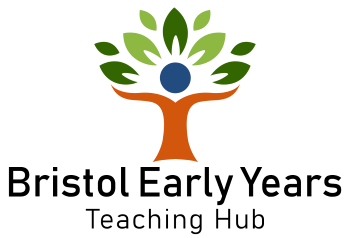
I’m Esther. I work for the SPH, supporting CPD events, and I am a mother passionate about books. I have worked for the indie publisher Little Feminist as a marketing director and closely with the Centre For Literacy In Primary Education, reviewing and analysing the quality of diversity in children’s publishing. I discovered the delights of reading diverse books to my seven-year-old boy so that he could see a reflection of himself. Inclusivity is crucial, and diversity knits together children’s lives in the community. I advocate for all ethnic minorities, yet I cannot claim to understand all cultures and heritages fully. Therefore, I am on a journey to learn more and help make space for all voices within the early years.
The Joy of Reading: How to Help Children Read for Pleasure Through Identity and Belonging by Esther Molyneux
The joy of reading is a powerful motivator for parents, educators, and caregivers, significantly impacting a child’s future success. The Early Years Foundation stage Statutory framework Section 1 emphasises that ‘language comprehension starts from birth. It only develops when adults talk with children about the world,’ and develops when we read with them. The Education Endowment Foundation (EEF) estimates that ‘children who engage in early literacy make, on average, four months’ additional progress in their reading’. When children learn to read, they gain knowledge, articulate ideas effectively, expand vocabulary, and enhance their attention span. However, literacy is more than a skill; it profoundly impacts children when they see a reflection of themselves, their identity, home structure, culture, and lived experience.
Why should we cultivate the joy of diverse reading?
The pleasure of reading helps to scaffold personal, social, and emotional development (PSED) while promoting a richer reading experience. Feeling like you belong can positively impact social, emotional, and learning. Nursery World says, ‘Belonging needs to be woven through your pedagogy, where the approach to teaching and learning always considers the children.’ Helping children find a sense of belonging alongside evidence-based approaches and creating a meaningful impact beyond a setting. The EEF’s Approaches to PSED supports teaching and modelling social communication using stories to improve social relationships. Children can start to understand emotions, identities, and the identities of others, fostering empathy and a nuanced understanding of complex issues.
Why books are critical to understanding the world
The DFE’s EYFs Framework distils a child’s ‘knowledge of the world is enriched with non-fiction and story books and a growing repertoire of songs, rhymes and poetry.’ In turn, books can extend familiarity with words that support understanding.
Rich literature is a powerful tool for broadening the horizons of early readers, igniting self-reflection and self-inquiry while fostering a deep understanding of diverse cultures and perspectives. It allows children to immerse themselves in the lives of others, nurturing empathy and being able to understand their community and make a contribution.
Reading to help children to understand identity
Books reflect the diverse communities that shape our identities. They encompass not just gender but also our rich multiracial heritage. Reading is a gateway to many voices, empowering them with a more inclusive and vibrant reading experience. According to the Book Trust, reading stories can offer children an authentic ‘mirror’ of their lives and experiences and a ‘window’ to view the experiences of others. ‘When children are emotionally involved in a story, they feel connected to and see their lives as part of the wider human experience. This can be transformative when it comes to developing their empathy.’
- Mirrors enable children to see themselves. Honouring children’s diverse cultural identities can help them see that their life stories matter.
- Windows lets readers see unfamiliar cultural spaces and view worlds unlike theirs.
- Sliding glass doors invite readers to enter cultural worlds, empathise with the character’s feelings, and better understand their multicultural nature.
Approaching communication and language
Early literacy activities expose children to rich vocabulary and language, such as reading books and pretend play. The EFF Communication and language approaches ‘involve intentionally acting to develop young children’s understanding of language and their ability and confidence to use language and other strategies to communicate effectively.’ Offering books in multiple languages celebrates children’s home language and builds their familiarity with English, acknowledges linguistic diversity, and helps them develop language skills. Reading in various languages can also provide comfort and connection to their culture, fostering a positive attitude towards reading.
Conclusion
By inspiring children to discover the joy of reading, we can show them that books are written for them, sparking their imagination and sense of belonging. We recommend continually supporting families in reading regularly together and widely, and it can start within a setting. The EYFS Framework prompts practitioners to sense-check bookshelves, ensuring they reflect a diverse world. Identify gaps, fill them with recommended books, and include self-made books to reflect the diversity of local communities. Instead of sticking to traditionally popular texts, include stories written by authors from various backgrounds, ethnicities, cultures and identities. It’s critical to look for stories that feature diverse characters with disabilities, sexual orientation, nontraditional family structures and varying socioeconomic backgrounds.
What’s Next
- Take a further look at the summaries and examples of evidence-based approaches on the EEF Evidence Store. Could you use and adopt some of these in your reflections and inquiries?
- Support your ED&I provision within your setting using the resource Inclusive Practice and Equalities – Birth To 5 Matters.
- Find suggested activities and next steps for your setting on integrating diversity using the DFE’s Early Years support on Understanding the World.
- Browse the Inclusion and Diversity Books for Babies on the Bristol Early Years website
- Contact the SPH for bespoke support on including and embedding the culture of ED&I in your setting.
References
Early Years Foundation stage Statutory framework Section 1: https://assets.publishing.service.gov.uk/media/65aa5e42ed27ca001327b2c7/EYFS_statutory_framework_for_group_and_school_based_providers.pdf
EEF Approaches for Supporting Early Literacy: https://educationendowmentfoundation.org.uk/early-years-evidence-store/early-literacy
DFE’s Diverse World EYFs Framework: https://help-for-early-years-providers.education.gov.uk/areas-of-learning/understanding-the-world/diverse-world#what-the-eyfs-framework-says
EEF Approaches to Supporting Personal, Social, and Emotional Development: https://educationendowmentfoundation.org.uk/early-years-evidence-store/personal-social-and-emotional-development?approach=teaching-and-modelling-social-communication
EEF Supporting Communication and Language in the Early Years: https://d2tic4wvo1iusb.cloudfront.net/production/documents/ey-evidence-store/early_years_evidence_store_supporting_communication_and_language_in_the_early_years.pdf?v=1710860125
EEF Approaches to Supporting Personal, Social, and Emotional Development: https://educationendowmentfoundation.org.uk/early-years-evidence-store/personal-social-and-emotional-development?approach=teaching-and-modelling-social-communication
Book Trust, The Benefits of Reading: https://www.booktrust.org.uk/globalassets/resources/research/booktrusts-benefits-of-reading-june-2024.pdf
Mirrors, Windows, and Sliding Glass Doors: https://scenicregional.org/wp-content/uploads/2017/08/Mirrors-Windows-and-Sliding-Glass-Doors.pdf
EEF Supporting Early Literacy in the Early Years: https://d2tic4wvo1iusb.cloudfront.net/production/documents/ey-evidence-store/early-literacy/supporting_early_literacy_in_the_early_years.pdf?v=1711029143
Nursery World, Health & Wellbeing: How to give children a sense of belonging: https://www.nurseryworld.co.uk/content/features/health-wellbeing-how-to-give-children-a-sense-of-belonging
National Literacy Trust, Reading to children is so powerful, so simple and yet so misunderstood: https://literacytrust.org.uk/blog/reading-children-so-powerful-so-simple-and-yet-so-misunderstood/
Photo by cottonbro studio


